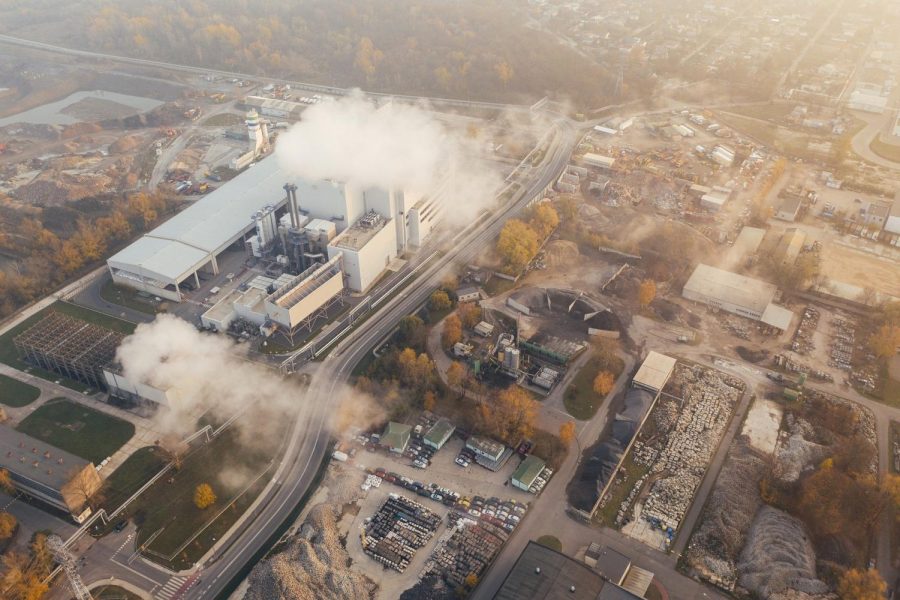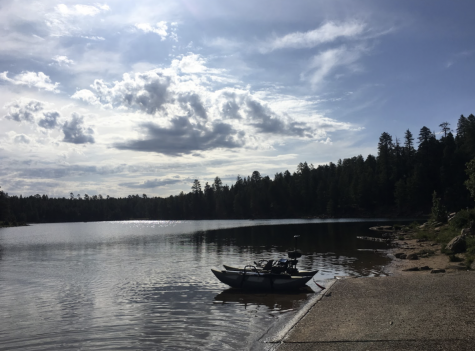It’s Not Too Late to Care
When humanity’s time on the Earth ends, it’s not going to be zombies, nuclear war or a huge asteroid hurtling into the planet that instantly decimates millions. It is most likely going to be climate change.
While this is unsettling to think about, it is necessary to be scared sometimes because more often than not, the truth is scary.
The truth is, humans have abused and continue to exploit every natural resource this planet has to offer. They have created machines that use those resources to cause even more damage even more efficiently.
However, climate change is still reversible. There are numerous sustainable options already in place and ideas to create a better tomorrow for everyone.
What is Climate Change?
Climate change is defined by the United Nations as long-term shifts in temperatures and weather patterns.
Certain aspects of climate change are considered natural occurrences. However, human interference has been the culprit of accelerating these trends since the 1800s.
The main concern regarding climate change is global warming which is defined by the United States Geological Survey as the rise in global temperatures mostly due to the increasing concentrations of greenhouse gasses in the atmosphere.
Open Source Software states 31,000 scientists reject global warming and say there’s “no convincing evidence” that humans can or will cause global warming. However, polls show that of scientists working in the field of climate science, 97% believe “global average temperatures have increased” during the past century.
Scientists think human activity is a significant contributing factor in changing mean global temperatures.
What Are Some Causes of Climate Change?
The number one cause of climate change is the burning of fossil fuels. This releases nitrogen oxide into the atmosphere, creating smog and damaging the ozone. As a society, we have become dependent on oil and gas. Several daily activities are toxic for the environment. This includes overusing electricity, driving and wasting food or drinks.
Electricity production is a major contributing factor to climate change. According to the Energy Information Administration, about 61% of electricity generation was from fossil fuels such as coal, natural gas, petroleum, etc. Approximately 19% was from nuclear energy, and about 20% was from renewable energy sources.
Another crucial component contributing to climate change is deforestation. Corporations have workers use machines that burn gas to tear apart entire ecosystems for profit.
Some Effects of Climate Change
Along with the destruction of multiple forests and the ecosystems within them, the UN states that climate change has caused some concerning phenomena.
The most popular climate change crisis is global warming. 2020 tied with 2016 as the hottest years on record. Increased temperatures lead to droughts and wildfires all over the world.
Another effect is severe weather. Changes in temperature result in a change of rainfall, sometimes to a catastrophic degree.
The ocean is another victim as it soaks up the heat and carbon dioxide causing the ice caps to melt, and the water itself to become more acidic, endangering marine and human life.
Despite seeing and living in the product of climate change, there are still those who deny it even exists. Some claim this is the Earth’s natural heating and cooling system and human inaction has had little to no impact on the environment.
Solutions
While the effects of climate change are disastrous, this is not the end! There are people working every day to clean up the planet and the energy system. Wind and water are now being used to create efficient and sustainable energy.
The best way to deter climate change is to pressure companies and governments to:
- Keep fossil fuels in the ground.
- Invest in renewable energy.
- Switch to sustainable transport.
- Improve farming and encourage vegan diets.
- Plant trees.
- Protect forests.
- Protect the oceans.
- Reduce plastics.
There are also some great habits the individual can adopt to lessen their carbon footprint: walking/ biking more, eating more vegetables than meat, avoiding single-use plastics, conserving water and using less electricity.

Riley Stembridge (they/them) is an English Education major from Saltillo, Miss. They chose this major because of their skill in English as well as an overall...




